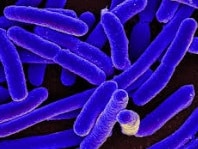The first thing we are going to do in order to discover the meaning of the term monera is to know its etymological origin. In this case, we can establish that it is a neologism that comes from the Latin "monera" and that, in turn, emanates from the Greek word "monos", which can be translated as "only" or even as "unique."
 An organism that is made up of a single prokaryotic cell is classified as a monera. Prokaryotic cells, meanwhile, are those that do not have deoxyribonucleic acid ( DNA ) inside the nucleus, but rather present it in the cytoplasm.
An organism that is made up of a single prokaryotic cell is classified as a monera. Prokaryotic cells, meanwhile, are those that do not have deoxyribonucleic acid ( DNA ) inside the nucleus, but rather present it in the cytoplasm.
In the same way, it is interesting to know that this neologism was coined by the German naturalist and biologist Ernst Heinrich Phillipp August Haeckel (1834 – 1919). Specifically, he gave shape to the aforementioned term in 1866 and at that time he did not fully use it with the meaning by which it is known today.
It was, however, in 1925 when the French naturalist Édouard Chatton (1833 – 1947) went one step further and used the noun monera to elevate it to the category of Kingdom. A measure that was expanded by the one carried out in 1969 by the American biologist Robert Harding Whittaker. And he chose to establish the existence of five kingdoms within the taxonomic system. Specifically, he talked about Monera, Fungi, Animalia, Protista and Plantae.
The "elements" that are part of the Monera kingdom are also characterized because they have a size of between 3 to 5 micrometers, because they carry out asexual reproduction or because they do not have organelles. Likewise, it must also be emphasized that they move, as a general rule, through flagella and because they can be heterotrophic or autotrophic.
The idea of monera can also be used as a noun and, in the plural, to refer to the taxon . A living being monera, in short, is a prokaryote or prokaryote .
These are microbes composed of a single cell whose nucleus is not defined. Initially the concept, accented in the letter O ( mónera ), was used to name the microorganism that supposedly lacked a nucleus, according to what was detailed by the Royal Spanish Academy ( RAE ) in its dictionary. Later, the advance of knowledge made it possible to realize that this statement was not accurate.
What is known as the Monera kingdom , therefore, changed over the years. Currently the notion is used to refer to prokaryotic organisms or bacteria . They are very small, unicellular beings that do not have organelles and have their free DNA in the region of the cytoplasm.
It is important to keep in mind, however, that the concept is not usually used today since, due to the distinction between bacteria and archaea , it is preferred to speak of prokaryotes to name microorganisms with the aforementioned characteristics.
